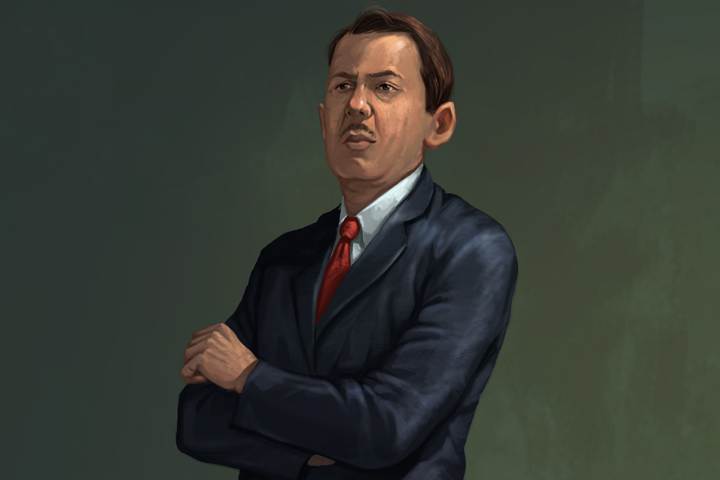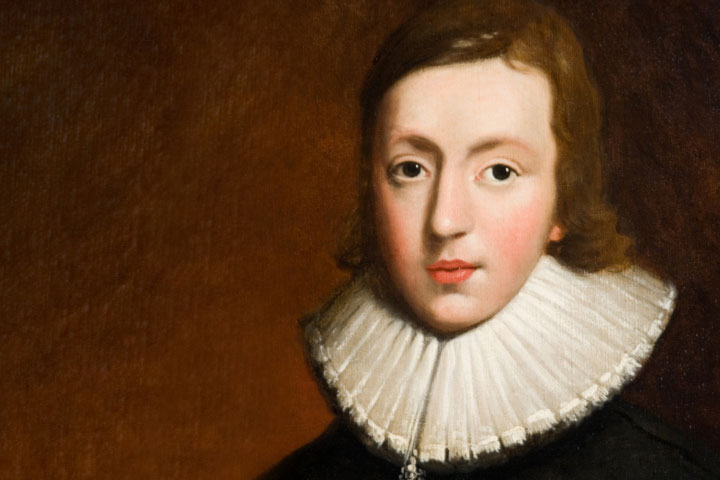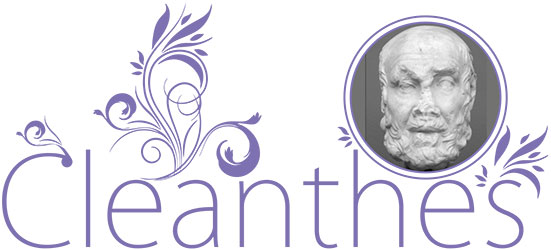

“I too wish to depart, but when I perceive myself to be in good health in every respect, and to be able to recite and read, I am content to remain,” said Cleanthes, a Stoic thinker and successor of Zeno of Citium. In these few words, Cleanthes synopsizes his entire life and dotage. They are also a paragon about how people should view their own senescence: with optimism instead of despair.
During his life, Cleanthes was the denigrated by his peers for being a slow learner and aspersed for his poverty. Despite such inherent detriments, he proved that quest for learning ranks as the most supreme among human desires, that physical, mental or financial hindrances can be easily overcome. And Cleanthes proved his sagacity over other well endowed peers by heading the Stoic school after its founder’s demise. His rise to fame was dotted with hardship, dithering poverty and jeers.

Cleanthes was born in Assos in Lydia, in 330BC. Renowned Greek historian and chronicler, Diogenes Laertius, in his book ‘The Life and Thoughts of Eminent Philosophers’, states, Cleanthes’ father was named Phanias. There are no records about his mother and siblings or early education.

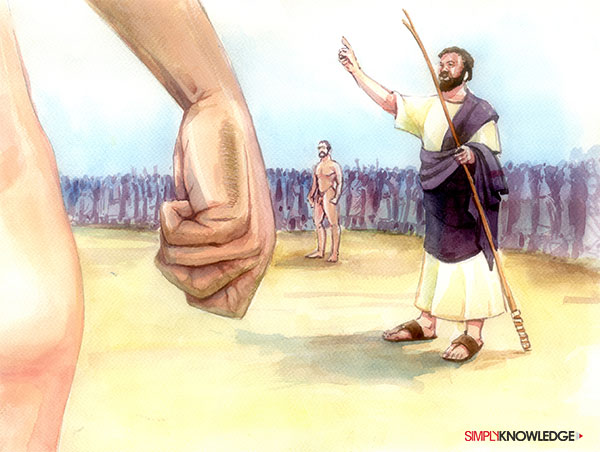
Few details are available about Cleanthes early life except that he was trained as a boxer or wrestler, which accounted for his robust build. Chronicler Diogenes Laertius claims, Cleanthes arrived in Athens around 310BC, with a paltry four drachmae- the local currency of ancient Greece- to spend but with a desire to study various schools of thought that prevailed during the era. Initially, he earned a living by wrestling on weekends in public places. But, the profession required capacious training, due to which he could not attend lectures by contemporary thinkers. Eventually, he gave up the profession, in pursuit of serenity.
A legend claims, Cleanthes suffered several blows to his head and spine during his career as an amateur wrestler. The physical damage scarred him for life: He became a slow learner- possibly due to minor brain damage.
Cleanthes was earlier charmed by the teachings of Crates the Cynic and embraced the cynic lifestyle and doctrine with gusto. For reasons unexplained, Cleanthes departed from the Cynic school and began studying under Zeno of Citium, the founder of Stoicism, who extrapolated that virtue and happiness are infallibly bound.

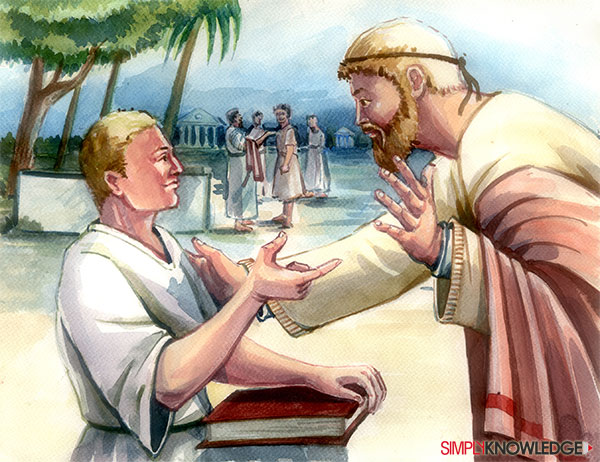
Unlike the cynics, the Stoics accepted payment for their teachings. Eager to study under a renowned master, Cleanthes approached Zeno of Citium, who was impressed by the young man’s impetus to study psychology and thoughts. Zeno accepted him as a pupil for a fee of one Obolus- an ancient Greek silver currency coin-per month, in conformity with the Stoic tradition of accepting payment for teaching.
Other students of Zeno hailed from wealthy and aristocratic families. They had joined the Stoa Poikile- the school founded by Zeno, for purely personal reasons, since oratory and philosophy were voguish during the era. Thinkers were venerated across Greece. Cleanthes, being poor, stood like a sore thumb among the well clad and elite group, which mocked him for his rustic mannerisms and labours.
During day, Cleanthes studied under Zeno assiduously and became a major proponent of Stoicism, much to the chagrin of his peers. At night, he took odd jobs such as helping a gardener to draw water from a well and grinding grains to make meal for a meal-seller. His classmates soon began chiding him for such menial work, labelling him as “well water drawer”, “meal grinder”, “labourer” and worse. Cleanthes took upon his calumniators with candid responses: When called an “ass” for his hard labour by other students, Cleanthes retorted: “Yes, I am an ass. Because I alone can bear the burden of Zeno’s teachings because it requires a strong back.” A fellow student once chided Cleanthes supine and subservient demeanour. Cleanthes responded saying: “I cannot afford mistakes,” to emphasize his point that his studies under Zeno were based on merit and not money.

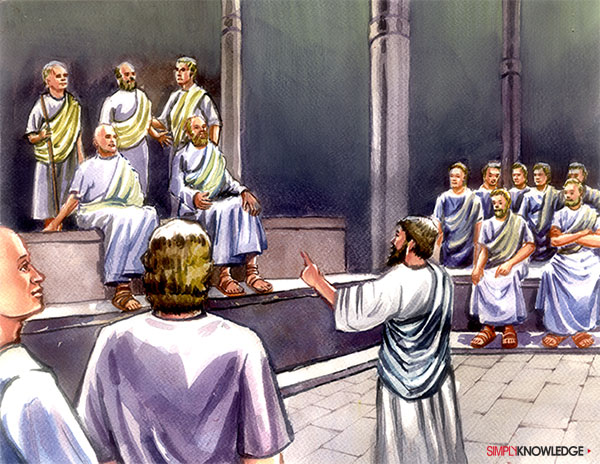
Unknown to Cleanthes, his robust healthy body but rudimentary lifestyle was noticed by some prominent citizens, who became suspicious about his association with Zeno. They were disconcerted by the fact that a naive and poor pupil was studying at a renowned elite school. Their resentments towards Cleanthes assumed a dangerous proportion when somebody drew the attention of Athenian authorities to a clear aberration of Stoic principles.
Cleanthes was therefore summoned before the Areospagus- the Athenian high court and asked to explain his source of income. An intrepid Cleanthes appeared before the court and gave a detailed account about his work in a garden during the night, which included drawing water, digging and other chores and as a meal grinder. Diogenes Laertius, the ancient chronicler states, the court was suspicious about Cleanthes’ claims. The budding thinker responded by producing the gardener whom he helped and the meal seller for whom he ground grains, as witnesses. He told the court about his zeal for higher learning and paucity of funds. He displayed notes of Zeno’s lectures, inscribed on shells, bones and other similar material, because he could not afford to buy paper and writing instruments like the affluent students.
The Athenian judges and jury were pained yet delighted at Cleanthes’ endeavours and studies. The judges ordered the state to pay Cleanthes a stipend of 10 minas or 1,000 drachmae, every month, as stipend to subsist. This was the first ever recognition of Cleanthes skills at argument and his love for studies. Overnight, Cleanthes had become a hero of the Stoic school, again vexing other students.

Upon hearing the court’s verdict, Zeno was delighted but requested Cleanthes to politely refuse the stipend from the state exchequer.
Among fellow students of Cleanthes was Antigonus II Gonatas, who later established the powerful Antigonas dynasty who ruled Macedonia and is believed to have converted to Buddhism due to influence by India’s Emperor Ashoka, when the two met, as recorded in the book ‘Edicts of Emperor Ashoka,” Historians remain divided over whether such a meeting and conversion actually occurred.
Antigonus was earlier a detractor of Cleanthes but began admiring him after the court hearing. He asked Cleanthes why he drew water from wells. Cleanthes replied wittily: “Do I do nothing beyond drawing water? Do I not also dig, and do I not water the land, and do all sorts of things for the sake of philosophy?” The reply impressed Antigonas, who instantly gifted Cleanthes 3,000 gold minas, with permission from Zeno. Despite Antigonas II Gonatas’ largesse, Cleanthes continued to toil for money.
According to a legend, he once walked into the classroom and displayed several coins he had earned during the evening by doing menial work. Proudly, he told other students: “Cleanthes could maintain even another Cleanthes if he were to choose. Others, who have plenty of means to support themselves, seek their necessities from others but only study philosophy in a very lazy manner.” Cleanthes was apparently referring to the one Obolus fee charged by Zeno, his own poverty, the affluence of other students and their ostensibly casual approach to the study of thoughts. He also insinuated that it was possible to lead a dignified life with fewer necessities through self sufficiency and hard work.

Living within his meagre means, Cleanthes had become the most prolific proponent of Zeno’s Stoicism, which earned him great respect from the master. Though Cleanthes’ natural facilities were slower than normal, possibly due to injuries sustained as a wrestler, his intrepidity and diligence enabled him to overcome all hurdles, rise above his peers and create his own niche n the Stoic school. Cleanthes studied under Zeno of Citium for some 19 years, till the master passed away in 262BC following an accident at the school, during which it is suspected he fatally injured his spine.

Zeno’s death was eventful: After tripping at the school and injuring a toe, the old master was unable to stand, possibly because his spine had fatally snapped. Cleanthes went to assist Zeno but was turned away. Zeno is said to have struck his fist on the floor and uttered some words about his death, according to unverified records. With other older students having left the Stoa Poikile in search of worldly pursuits, Cleanthes was the clear successor. Cleanthes was well respected in Athens for his high morals, hard work and honesty. Cleanthes thus became the head of the Stoic school and is widely acclaimed as its main propagator.

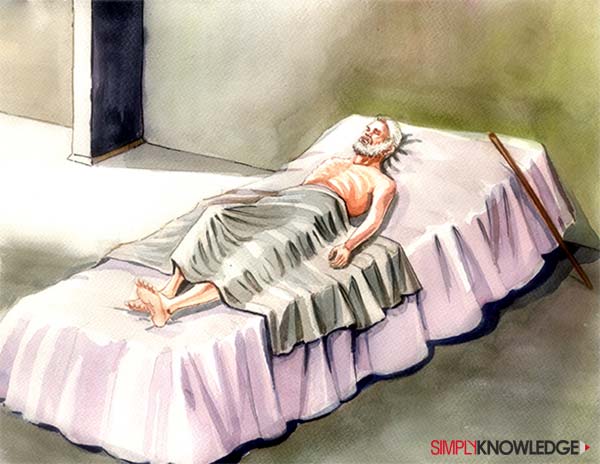
Ancient historian Laertius chronicles Cleanthes as having perished due to a mouth infection, possibly pyorrhoea and subsequent starvation. According to records, Cleanthes suffered a very painful gum condition and could not consume any food. The pain was so excruciating, none of the contemporary remedies could cure it. Eventually, Cleanthes pleaded with his physicians to let him return to his regular lifestyle.
Cleanthes starved himself hoping his painful gum condition would be cured naturally. But prolonged lack of food made the master weak, leading to a secondary medical complication of his stomach. The two concurrent ailments proved fatal- Cleanthes breathed his last in 230BC, having lived an exemplar life.
Athenians, obligated to Cleanthes for his teachings on morals, virtue and happiness, erected his statue in Assos, his birthplace, at the cost of the state.

Since most works by Cleanthes has perished over the centuries, historians find it difficult to identify him with any specific teachings. However, extant works by later psychologists state that Cleanthes extrapolated that morals, virtue and happiness are entwined. He is claimed to have taught that happiness can be attained only through a virtuous life- the basic tenet of Stoicism.
Cleanthes remains an epitome of humans who are congenitally or accidentally handicapped mentally but rebel against all adversities and rise to fame. He also proved that poverty is never a hindrance to higher education. The manner in which he responded to other students who reviled his poverty and clumsiness serve as an example for modern day students to withstand the criminal practice called ‘ragging’ at educational institutes and campuses.
Next Biography









